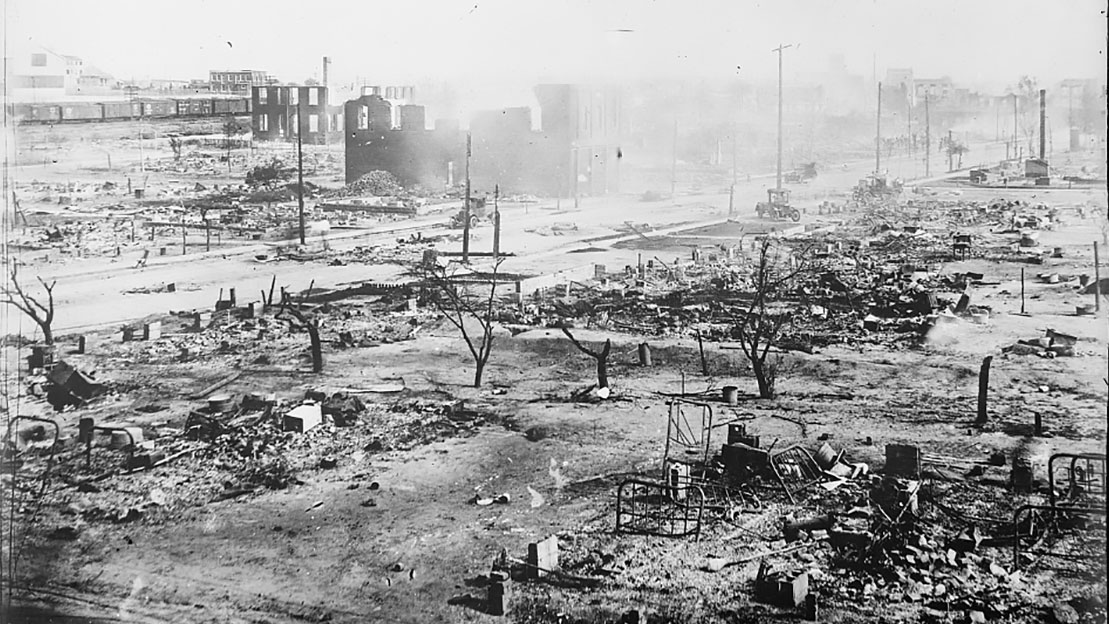
MAY 31, 1921

The Tulsa race massacre began after a white mob gathered at a jail where a Black teen had been arrested on false charges of “attacking” a white girl in an elevator.
In reality, he may have tripped or bumped into her. Although authorities exonerated him, that didn’t stop the mob.
“As the whites moved north, they set fire to practically every building in the African American community, including a dozen churches, five hotels, 31 restaurants, four drug stores, eight doctor’s offices, more than two dozen grocery stores, and the Black public library,” according to a 2001 report on the massacre.
That rampage left as many as 300 dead and 10,000 homeless. “They tried to kill all the Black folks they could see,” recalled George Monroe, who was 5 at the time. The Black community known as Greenwood bore the name of the Mississippi Delta town. Greenwood, known as the “Black Wall Street” for its bustling businesses, became a pile of ashes.
No one was ever prosecuted for these crimes. Viola Fletcher, a 107-year-old who survived, said, “I have lived through the massacre every day. Our country may forget this history, but I cannot. I will not. And other survivors do not. And our descendants do not.”
The community that once sprawled beyond 35 blocks is now just one block. A 7,000-square-foot museum, Greenwood Rising, now honors that community.

